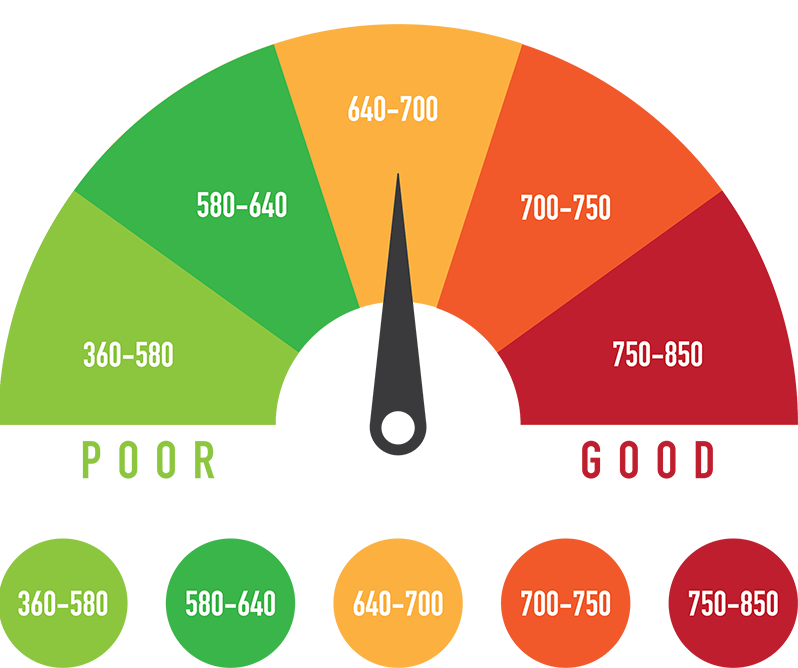Fans of the British anthology television series Black Mirror may recall the “Nosedive” episode in which a woman’s life was governed by the way others “ranked” her. Ultimately, poor rankings disqualified her from living in the neighborhood of her choosing—in addition to heaping several other maladies upon her.
Well, guess what? Situations like this really happen. Sure, it might not be as flashy as a futuristic Netflix series. But in truth, your credit score can determine where you live, what jobs you get and what car you drive. By extension, it can also control many other aspects of your existence.
With that in mind, it’s useful to examine the following factors capable of lowering your credit score.
Payment History
The most important credit scoring factor is payment history; accounts for 35 percent of your score. Further, the longer a bill goes unpaid, the more significant the impact it has upon your record.
Even worse, issues like charge-offs, collections, bankruptcies, repossessions, tax liens or foreclosures can make it nearly impossible to get approved for anything requiring a good credit score.
Amount Owed
The next most significant factor is the amount of debt you have in relationship to the credit limit for which you qualify. Also known as credit utilization, this is the ratio between the total balance you owe and your total credit limit on all your revolving accounts (credit cards and lines of credit).
The higher your utilization rate, the lower your credit rating. Maxing your credit cards or carrying a balance form month-to-month increases your utilization rate. This accounts for 30 percent of your overall score.
History of Credit Use
The average age of your open accounts is considered as well. But that’s just one of the elements at work here. Also considered are:
- The age of your oldest account.
- The age of your newest account.
- The average age of all of your accounts.
- Whether you’ve used an account recently.
A lot of people think paying off a credit card and closing the account is good for their credit history. This can actually hurt a credit ranking. It’s better to pay it off and keep it open—especially if the account is an old one and imposes no annual fee. Keeping it will give you a longer history and the zero balance will lower your utilization rate.
This factor represents 15 percent of your overall score.
Credit Types
While this only factors into 10 percent of your ranking, the types of credit you have does play a role. Ideally, you ‘ll carry a nice mix of credit cards, car loans, a mortgage and some revolving credit. If you’ve kept all of these in good shape, lenders will consider you seasoned at handling various types of credit and look more favorably upon your loan applications.
“Hard” Inquiries
Whenever you submit a loan application, the lender will inquire with one of the big three credit rating agencies (Experian, Equifax and TransUnion). A notation is made of each inquiry. The number of inquiries made over a given period will weight your score. This comprises the final 10 percent of your ranking.
You’re entitled to check your credit score for free once every year. This is considered a “soft” inquiry, as it isn’t for the purpose of getting a new loan.
Similarly, a cluster of one or two over a short period won’t hurt much, because it’s figured you’re shopping for a car loan or a home loan or the like. However, multiple “hard” inquiries like this over a short period of time will raise red flags. It gives the appearance you’re in trouble and seeking a way out through credit.
If You Are Already In Trouble
If things have gotten out of hand and you’re on the wrong side of all of these factors, perhaps a consultation with a debt relief firm is in order.
Companies like Freedom Debt Relief can be particularly helpful in this regard. Looking over background information like these Freedom Debt Relief reviews can help you find the right company for your needs.
While these organizations can’t improve your credit score, they can help you get a handle on your debts, so you can set about improving it on your own.
Don’t let a poor credit score put you into a dystopian personal situation. Take the step necessary to reestablish your financial freedom.
![[Jcount.com]](https://www.jcount.com/wp-content/uploads/2014/08/jcount150X50.png)
![[Jcount.com]](https://www.jcount.com/wp-content/uploads/2014/08/jcountstartupslogo1.png)





